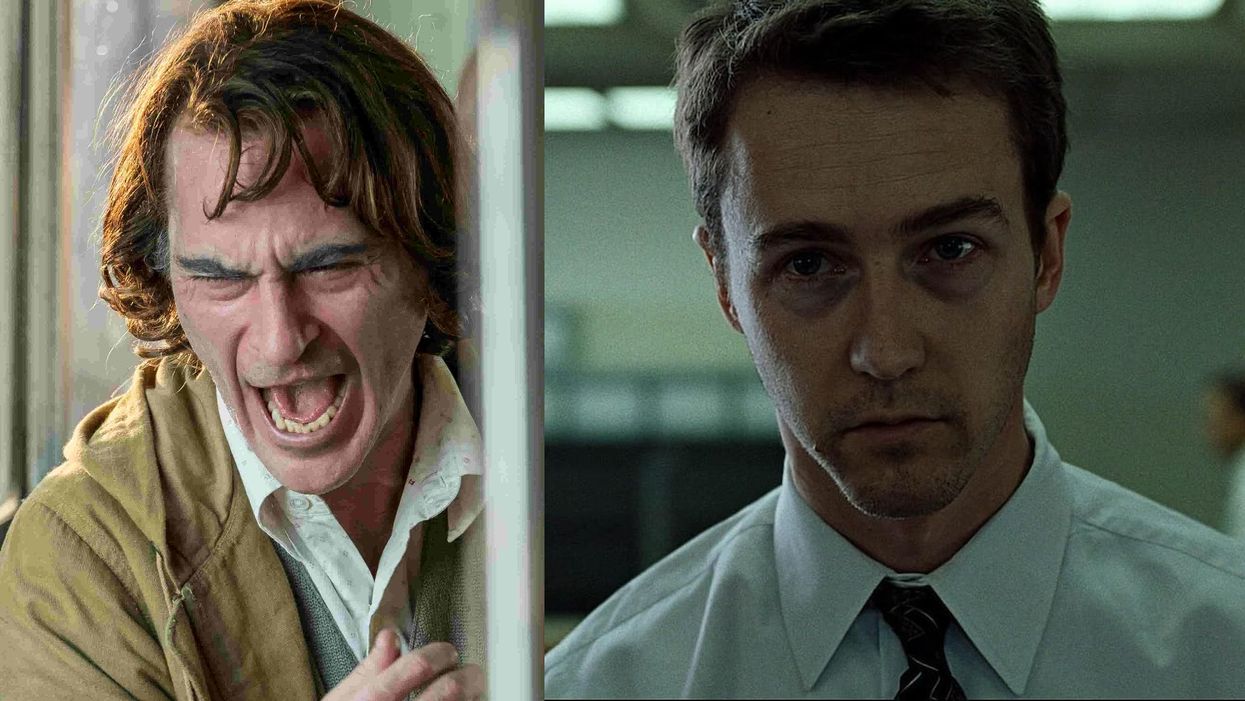Why Did David Fincher Compare 'Joker' to 'Fight Club'?
Joker caused a big stir last year, and it's getting some interesting comparisons.

Every movie has something to say, but many of us cannot agree on the message of some movies. Take last year's Joker, the Todd Philips comic book film adaptation that took everything very seriously. It was shaped like Taxi Driver and had the anarchy and chaos of most of Scorsese's catalog.
Still, the audience fervor pushed the box office close to a billion dollars. But the movie would not have been realistic before Christopher Nolan came in and took comic books seriously.
In a recent interview with the Telegraph, Mankdirector David Fincher had some things to say about the film and the state of the industry as a whole.
“Nobody would have thought they had a shot at a giant hit with Joker had The Dark Knight not been as massive as it was,” Fincher said.
He pointed out the unique concept for the film and how it wouldn't have worked any other time.
“I don’t think anyone would have looked at that material and thought, Yeah, let’s take [Taxi Driver’s] Travis Bickle and [The King of Comedy’s] Rupert Pupkin and conflate them, then trap him in a betrayal of the mentally ill, and trot it out for a billion dollars,” Fincher said.
It's incredibly hard to tell what movie will have crossover recognition. It's also hard to deal with what the audience takes away from a film like that. I'm not sure Fincher was slamming Joker as much as saying that the character of the Joker was betrayed by the system, which is what people empathized with inside the movie.
He was more reacting to the fact that it was crazy that the movie did so well with audiences.
Fincher continued, “I’m sure that Warner Bros. thought at a certain price, and with the right cast, and with De Niro coming along for the ride, it would be a possible double or triple. But I cannot imagine that movie would have been released had it been 1999.”
You have to listen to Fincher here because he has some experience making movies that have something to say, even if the audience gloms onto something that may not be there. The movie reminded him a lot of Fight Club, a send-up of toxic masculinity that was embraced for the wrong reasons by frat boys and found itself becoming a breakout and controversial hit.
20th Century Fox initially balked at making the movie. Regarding early screenings, Fincher said, “The general view afterwards among the studio types was, ‘Our careers are over.’ The fact we got that film made in 1999 is still, to my mind, a miracle.”
These miracles are even less common today. Studios want clear returns on their investment. And even though they should learn they can find breakout hits subverting expectations and challenging audiences, they usually do not.
"The reality of our current situation is that the five families don’t want to make anything that can’t make them a billion dollars,” he said. “None of them want to be in the medium-priced challenging content business. And that cleaves off exactly the kind of movies I make. What the streamers are doing is providing a platform for the kind of cinema that actually reflects our culture and wrestles with big ideas: where things are, what people are anxious and unsure about. Those are the kinds of movies that would have been dead on arrival five years ago.”
Fincher's next movie, Mank, premieres Dec. 4 on Netflix.
What did you think of his comment on Joker and on the industry?
Let us know in the comments.
Source: The Telegraph











